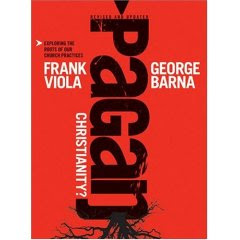In this post I am not interested in discussing the issue of whether Sunday is the sabbath or should be considered the Christian sabbath or not. My interest is the historical one— did early Christians regularly meet on a fixed day of the week, and was that day Sunday? We have seen in the immediately previous post, that Pliny noticed that Christians did indeed meet on specific or set day of the week, at least in the region where he was governor. But is there other evidence besides the allusion to the Lord’s Day in Revelation 1, or the reference in 1 Cor 16? Well yes there is, and it is probably first century evidence as well. Here below you will find the discussion in the Didache on this very matter. The first day of the week was called the Lord’s Day, because of course it was the day Jesus rose from the dead. It was not picked because it was called Sunday or the day of Apollo. It had to do with the Jewish calendar not the Julian one, and more specifically it had to do with when after dying on Passover Eve Jesus thereafter rose from the dead.
Here is the quote from the Didache–
14:1 And on the Lord’s own day gather yourselves together and break bread and give thanks, first confessing your transgressions, that your sacrifice may be pure.
14:2 And let no man, having his dispute with his fellow, join your assembly until they have been reconciled, that your sacrifice may not be defiled;
14:3 for this sacrifice it is that was spoken of by the Lord;
14:4 “In every place and at every time offer Me a pure sacrifice;
14:5 for I am a great king, saith the Lord and My name is wonderful among the nations.”
15:1 Appoint for yourselves therefore overseers and deacons worthy of the Lord, men who are meek and not lovers of money, and true and approved;
15:2 for unto you they also perform the service of the prophets and teachers.
The translation here is by that other Durhamite, J.B. Lightfoot. Several points call for comment. Firstly, in this text there is a definite reference to the Christian meeting being on Sunday, and the activities listed involve sharing in the Lord’s Supper and confessing sins, as James instructed. Notice that the word sacrifice is applied here to the meal which is spoken of as involving breaking bread and giving thanks. What makes especially clear that the reference is to the Lord’s Supper, is that it entails a sacrifice “spoken of by the Lord”.
The very next section of the Didache refers to the congregation appointing for themselves both overseers and deacons who perform for you the service of prophets and teachers. The reference here is clearly enough to specific persons who are appointed to specific roles, and what is interesting is that the ‘speech’ roles are assigned to overseers/bishops and deacons who are to be the congregation’s prophets and teachers.

